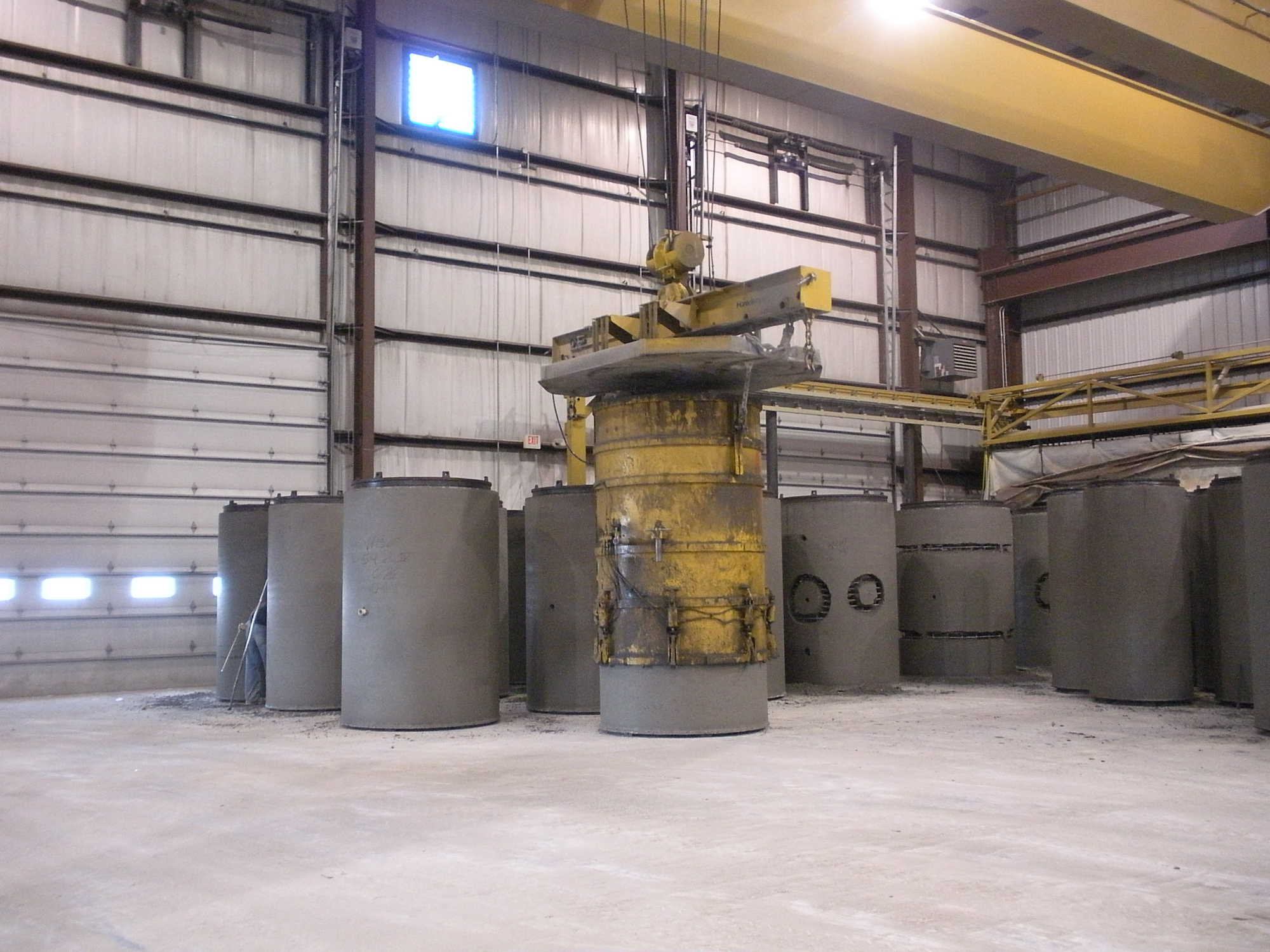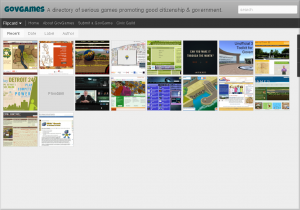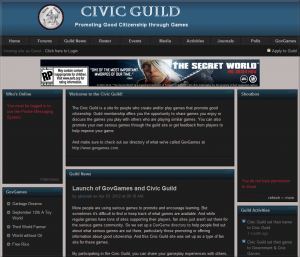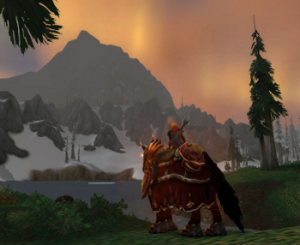As a result of my participation last year in a course held by Boise State University (BSU), I gained the opportunity to create my own courses using 3D Game Lab – an online game-based learning platform hosted by BSU. My primary goal in doing so was to offer information and resources to citizens in our community in an easy to use and fun format that was accessible 24/7. To begin, I chose to create a course on drainage and flooding because this is a topic about which we seem to get a lot of calls or questions. But now as I am nearing completion of the course and getting ready to roll it out for use, I realized there is no good place or centralized location to offer information about serious games designed specifically for citizens. And while regular games have numerous fan sites all over the place where players can talk about the games and exchange ideas and opinions, there's nothing for players or users of these "gov games."
So I figured if our city needed a place to promote our game and a place where people could discuss the game and offer feedback, other agencies could probably use something like this too. And how much better it would be if we could all be located in one place. That way anyone interested in serious gaming related to government and community would not have to search all over the Internet. And if there was a type of guild site for these games, people could go there to see reviews of games, discover new games, or just interact with others who are interested in civic gaming. The members of this guild site could also become a type of Civic Guild which might then offer opportunities reaching beyond only online interactions!
In the end, I was not really sure how much of a need for this was out there or if it would actually work the way I envisioned, but I went ahead anyway and set up a GovGame Directory and Civic Guild site. You can visit the sites by clicking the links below. Because this idea is still somewhat in Beta form, it would be great to get feedback on whether or not people think this would be beneficial, and if so, how the sites could be improved. And feel free to submit your favorite GovGames through the directory site so we can add them to the listing. I know I'll be adding ours once it's finally completed.
GovGames Directory
Civic Guild Site




